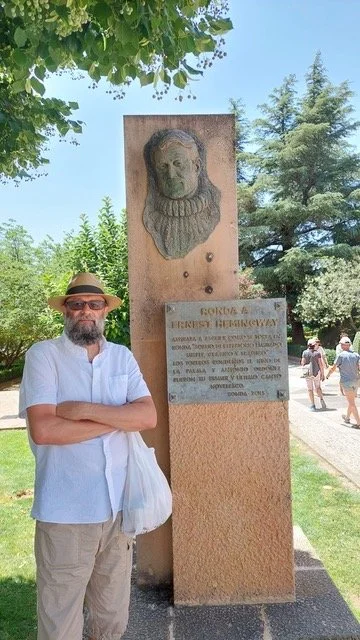Darby Book Research
Spent five weeks following Darby’s Rangers across the Mediterranean. Spoke to some old Italians about their parents and their memories, walked on their properties while analyzing the battles. Walked on trails that kicked my ass… Really great stuff and there are many people I have to thank and that will come later. The more I research, the more I learn, the more I hate wars… it’s a shit thing for most people although there are a few who love it… couple of pics from the beaches we hit….










